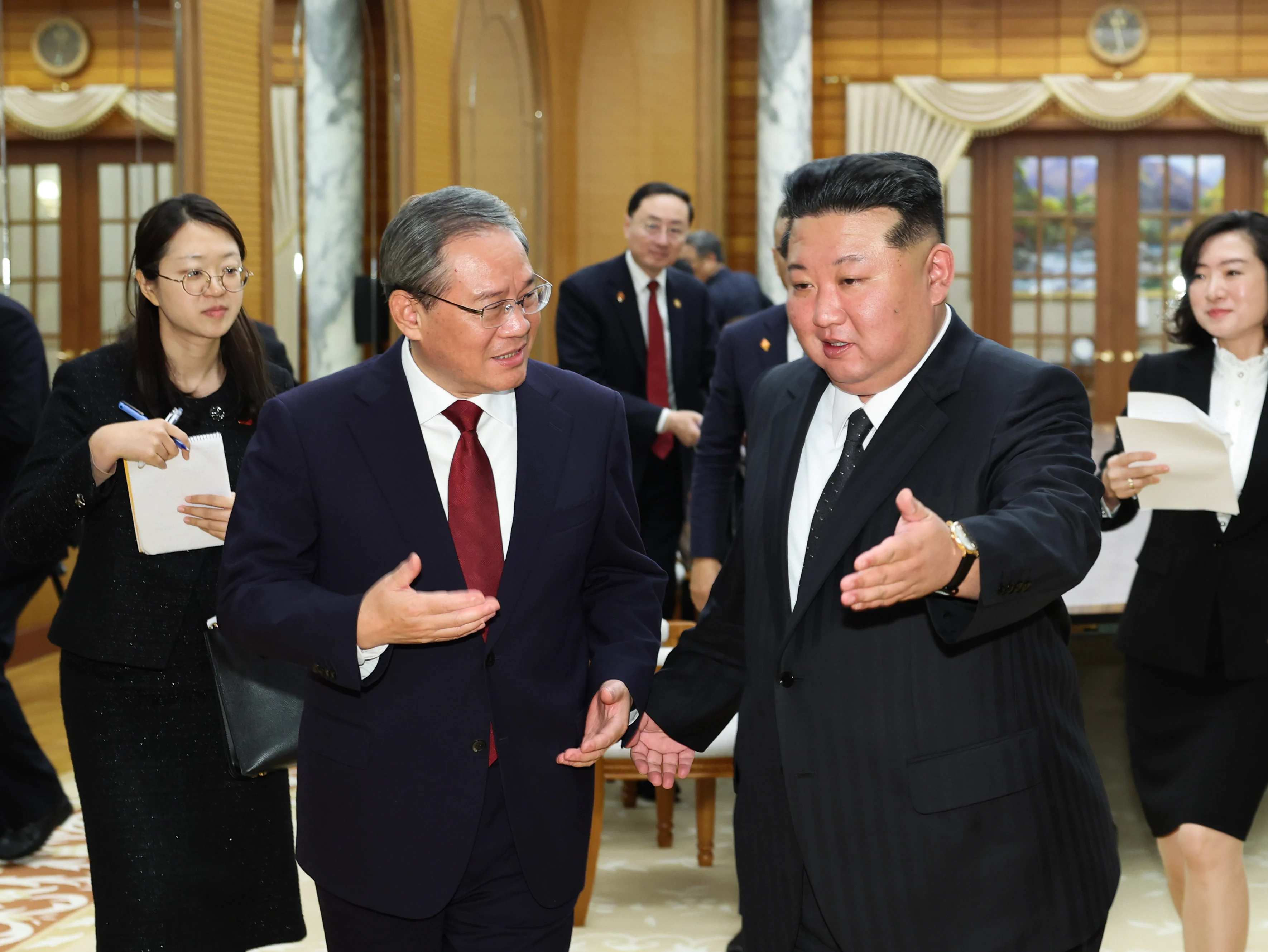By Orange Wang
Copyright scmp

Beijing is ready to deepen collaboration with Pyongyang to advance a “more just and equitable” international order, visiting Chinese Premier Li Qiang told North Korean leader Kim Jong-un as the two neighbours spotlighted their “unwavering” ties.
It remains China’s “unwavering” policy to maintain, consolidate and develop the traditional friendship and cooperation with North Korea, Li said during the meeting on Thursday, according to Chinese state news agency Xinhua.
Li – China’s No 2 official and the most senior Chinese dignitary to visit North Korea since 2019 – also highlighted Beijing’s commitment to enhancing high-level exchanges and strategic communication with Pyongyang.
“China is willing to work with North Korea to … closely coordinate and cooperate in international and regional affairs, strengthen multilateral collaboration, firmly safeguard and practice multilateralism and promote the development of the international order in a more just and equitable direction,” he added.
According to North Korea’s official Korean Central News Agency (KCNA), Kim echoed that it was also the “unwavering” stand of Pyongyang to further strengthen and develop friendly and cooperative relations with Beijing “in line with the demands of the times”.
“Our party, government and people, together with the Chinese comrades, will promote more dynamic development of DPRK-China relations in the common struggle for realising the socialist cause,” Kim said, using the acronym of North Korea’s official name.
Li’s three-day visit coincides with the 80th anniversary of North Korea’s ruling party, the Workers’ Party of Korea (WPK). He will attend a series of commemorative events, which are expected to include a military parade on Friday.
The trip is one of the latest signs of warming relations between the two countries and follows Kim’s visit in early September to Beijing, where he attended the massive military parade in Tiananmen Square marking the end of World War II.
Kim’s presence at the parade, where he stood shoulder to shoulder with President Xi Jinping and Russian leader Vladimir Putin, was interpreted by many observers as a symbol of North Korea’s rising diplomatic position in the global arena.
During his visit, Kim also sat down with Xi for the first time in six years, a meeting characterised by both Beijing and Pyongyang as a mapping out of future bilateral relations.
The official news agencies of both countries reported that Xi sent a message of greeting to Kim on Friday to celebrate the 80th anniversary of the ruling party’s establishment.
It was the second congratulatory message the Chinese leader has extended to Kim within about a month, following one conveyed on September 9, for the 77th anniversary of North Korea’s founding.
“No matter how the international situation may change, it is the consistent policy of the Chinese party and government to successfully maintain, consolidate and develop China-North Korea relations,” Xi wrote in the latest message.
“China stands ready to work with North Korea to … make positive contributions to peace, stability, development and prosperity of the region and the rest of the world,” he added, along with a wish for the bilateral friendship to “shine long”.
The recent wave of diplomatic exchanges included the attendance of Cai Qi, who ranks fifth in the Communist Party hierarchy, at a reception held by the North Korean embassy in Beijing on Thursday.
Cai echoed the language of Xi and Li, noting that China “firmly” supported the WPK and the North Korean people in following “a development path suited to their national conditions”, according to Xinhua.
These frequent high-level interactions have taken place in conjunction with other indications that Beijing is striving to balance relations with Pyongyang, especially given expectations that Xi may attend this month’s Apec summit in South Korea, where he could hold talks with US President Donald Trump.
Kim said on Saturday that Pyongyang had allocated strategic assets to respond to the build-up of US military forces in South Korea and vowed to develop additional military measures.
Asked on Thursday whether Xi would travel to South Korea for the Asia-Pacific Economic Cooperation forum event and meet Trump there, Chinese foreign ministry spokesman Guo Jiakun said he had “no information to share at the moment”.
“China attaches great importance to Apec”, Guo said. “We stand ready to work with other parties at this year’s meeting to produce positive outcomes and contribute to the economic growth of the Asia-Pacific and the wider world.”
On the same day that Li met Kim in Pyongyang, Beijing announced that the China–North Korea postal route linking the Chinese border city of Dandong with the neighbouring North Korean city of Sinuiju officially resumed on September 25, following coordination between the two governments.
“The reopening of the China–North Korea border land postal route will provide greater convenience for mail exchanges between the two peoples,” according to a statement issued on Thursday by the Chinese State Post Bureau on its website.
The postal route was “temporarily suspended” according to a notice published in July by the state-owned enterprise China Postal Express and Logistics.
The railway connecting Dandong and Sinuiju was suspended repeatedly when North Korea fully closed its borders in 2020 because of Covid-19 but was confirmed to have resumed operations in September 2022.
Beijing has been Pyongyang’s top trading partner for more than two decades, accounting for 98 per cent of North Korea’s official total imports and exports in 2024.